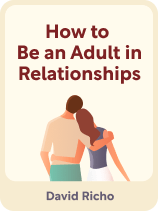

This article is an excerpt from the Shortform book guide to "How to Be an Adult in Relationships" by David Richo. Shortform has the world's best summaries and analyses of books you should be reading.
Like this article? Sign up for a free trial here.
What’s the concept of universal compassion? Why should you strive to be compassionate for everyone around you?
Universal compassion is an idea in Buddhism that asks you to have compassion for all living beings in the world. David Richo’s book How to Be an Adult in Relationships explains why everyone should live up to this standard and how to practice it, even if you’re not a Buddhist.
Read below for a breakdown of universal compassion and how to accomplish it to improve your life.
Universal Compassion
At this point, you know why mindful love is so important to strong relationships and may have started bringing great aspects to your own relationships. This sets you up to strive for universal compassion (better known as universal-loving kindness), the Buddhist tenet that requires compassion for all living beings.
According to Richo, this is the ultimate goal of learning how to love mindfully. Romantic relationships teach you to honor your partner’s inherent lovability despite flaws and conflicts—he sees this as a small-scale way to practice extending compassion to everyone.
Why You Should Strive for Universal Compassion
Richo says that universal loving-kindness should be your ultimate goal because it has two major life-improving benefits: It gives your life meaning and it improves society.
First, Richo says that universal loving-kindness compels you to help others when they’re suffering, which will make your life feel more meaningful. For example, if you see that your neighbor is struggling to afford food, you might practice universal loving-kindness by helping them buy groceries. You may not be able to solve world hunger on your own, but you can be part of the solution in small ways.
(Shortform note: Research suggests that helping others increases your sense of meaning because it strengthens your connection to others. Connection is a basic psychological need—humans are an interdependent, social species. When you help someone else, you fill an important role in their life, which reinforces that interdependence and cements your social bond with them. As a result, you have the sense that your life matters—you did something meaningful for someone, and you belong here.)
Second, universal loving-kindness is necessary for the well-being of global society. Because loving-kindness emphasizes our common humanity, it enables you to relate to others as equals and overcome conflict collaboratively, rather than destructively.
(Shortform note: This principle is the basis of many religions, not just Buddhism—lots of people believe in the power of love to change the world, and many religious rules and practices function to create supportive, loving communities. There’s also some scientific merit to this idea—our institutions and policies may be more effective if they’re informed by a love for all humanity.)
Get Started With Compassion Meditation
Even if you haven’t yet mastered the art of mindful loving, you can still improve your capacity for universal loving-kindness through loving-kindness meditation. Although this is traditionally a Buddhist practice, some psychologists recommend it for anybody who wants to feel happier, healthier, and more strongly connected to others. Here’s one way to practice it:
- Create an intentional space by sitting quietly, relaxing your body, and focusing on your breath.
- Imagine what perfect inner peace would feel like. Once you find that feeling, allow yourself to dwell on it—really feel the warmth, comfort, and love that inner peace entails.
- Now, focus your attention on a loved one. Wish that they’ll have the same sense of inner peace you’re experiencing right now.
- Continue to generate compassionate well-wishes for other people you know.
- Then, focus your attention on people you don’t know, like global populations that are suffering, and compassionately wish the best for them, too.

———End of Preview———
Like what you just read? Read the rest of the world's best book summary and analysis of David Richo's "How to Be an Adult in Relationships" at Shortform.
Here's what you'll find in our full How to Be an Adult in Relationships summary:
- The secret to a long-lasting, loving relationship
- How to overcome emotional wounds that hold you back from loving
- How the Buddhist concept of mindful loving can create a better world






